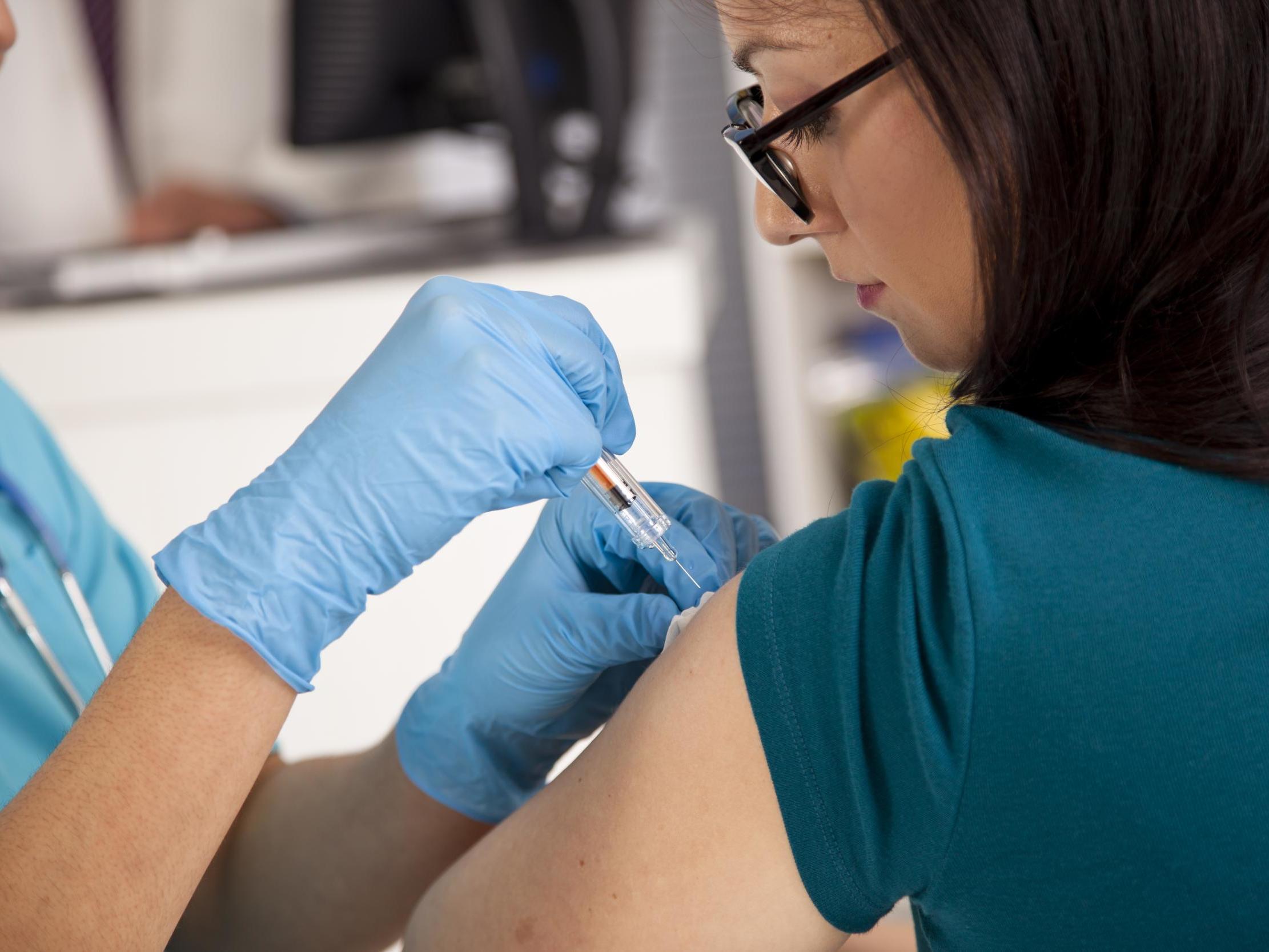No-deal Brexit ‘likely’ to delay flu vaccine supply, doctors warn
‘Rushing things into a country in a period post no-deal Brexit might be a bit difficult,’ says drugs manufacturer

A no-deal Brexit would “likely” delay flu vaccine supplies at a time when the UK is facing a particularly deadly strain of the illness from Australia, health experts have warned.
They say doctors are facing a “triple whammy” as Britain’s withdrawal from the EU coincides with the demanding winter season following a “tricky summer” this year.
The NHS says the best time to have a flu vaccine is in the autumn, from the beginning of October to the end of November.
However, Hugo Fry, managing director of drugs manufacturer Sanofi UK, told the BBC a million doses of the vaccine would still need to be imported into the country after 31 October.
He said this was because of a delay in identifying which strains of flu to put into this year’s supply.
Mr Fry added: “In the world of vaccines you get shortages more often than you do in medicines, for example, because of the complexity.
“Therefore imagine a world where it is difficult to get things into a country and there’s a shortage of a particular vaccine, that’s when you want to rush it into the country in case there’s a shortfall.
“Rushing things into a country in a period post no-deal Brexit might be a bit difficult, for example.
“Unfortunately I didn’t bring my crystal ball with me, but what we’re doing is planning for what we think will be the worst-case scenario.”
Andrew Goddard, president of the Royal College of Physicians, also expressed concerns that a no-deal Brexit would negatively affect this year’s supply.
He told the BBC: “I can’t sit here and say, ‘don’t worry, no deal will be fine, no one is going to come to any harm, no one is going to run out of medicines’.
“What we can see is we’re likely to not have enough flu vaccine, we are likely not to have the flu vaccine coverage that we’ve had in previous years, and that is likely to have an impact on the NHS.”
Saffron Cordery, deputy chief executive of NHS Providers, agrees there could be problems, and believes doctors are “facing a triple whammy” this year when it comes to issues with flu medicine.
She said: “We’re coming out of the summer, which has been a really tricky summer for the NHS. We are also facing a particularly virulent strain of flu coming from Australia.”

The Department of Health said: “We are working closely with vaccine suppliers to ensure they have robust contingencies in place.
“We want to reassure our patients that our plans should ensure that supplies of vaccines remain uninterrupted when we leave the EU on 31 October, whatever the circumstances.”
Flu vaccines are offered free every year to those most at risk of the illness, including over-65s and pregnant women, and other people can pay a small fee for them.
Last winter, the vaccine was given to 72 per cent of eligible over-65s and 45 per cent of eligible pregnant women, according to Public Health England.
Press Association contributed to this report
Join our commenting forum
Join thought-provoking conversations, follow other Independent readers and see their replies
Comments
Bookmark popover
Removed from bookmarks